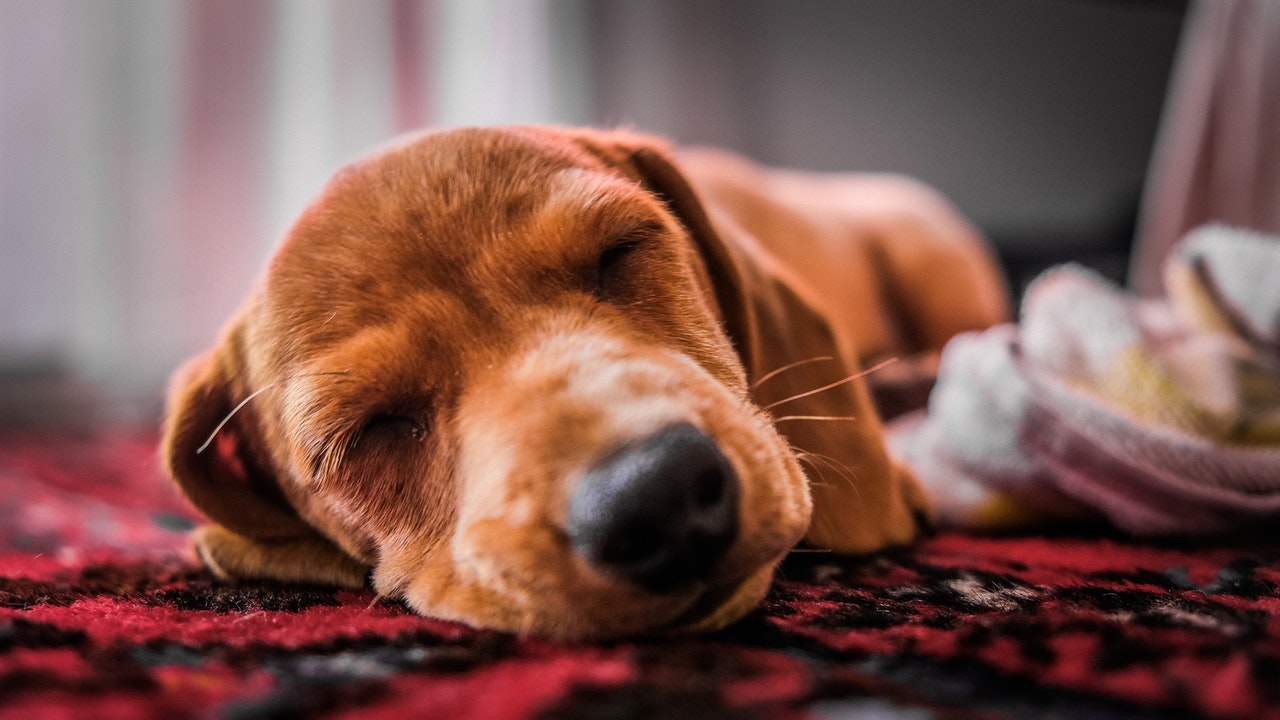
Sleep apnea is a condition that is prevalent in humans, but did you know that dogs can get it too? While it is not common, sleep apnea can happen to our four-legged friends similar to what we humans experience. Sleep apnea often occurs when your pet is overweight since it will have an obstructed passageway that makes it difficult for them to breathe; thus, causing sleep disorder. Dogs who suffer from allergies are also at risk as the allergens can affect your pet's airway and disrupts the ability to breathe properly.
How Can I Tell if My Dog Has Sleep Apnea
Loud snoring is a common symptom of this condition. But snoring does not always mean that your pet has sleep apnea. Snoring is common in brachycephalic dog breeds such as English Bulldogs, French Bulldogs, Pugs, shit Zu, and Boston terriers. Their compact facial structure affects their airways which can increase the risk of snoring and sleep apnea.
Other common symptoms include:
- Choking or gasping while sleeping
- Constant naps during the day
- Irritability during the day.
- Extremely tired even after waking up
Allergens can also trigger sleep apnea in dogs. Your veterinarian may test your pet for allergens to see if it can cause sleep apnea.
When to See a Veterinarian
If your pet snoring too frequently. too noisy and they are not getting enough sleep, speaking with your vet is always a good idea. It is also a good idea to consult your pet's condition with a sleep dentist who has experience in sleep apnea treatment.
Health Problems Caused by Sleep Apnea
You should not ignore the dangers of sleep apnea as without treatment, it can increase the risk of fatal health conditions such as high blood pressure, diabetes, obesity, stroke, and heart disease.
How To Treat Sleep Apnea in Dogs
At the moment, there are no similar equipment to humans such as CPAP or oral impliance therapy available in dogs. Surgery might be an option, but the success rate is so low that it probably is not worth considering. So what we're left with are common home remedies for sleep apnea.
One of the most effective ways to treat sleep apnea is weight loss and exercise. You can also try to minimize the number of allergens in your home to help your dog to breathe easier. Depending on your dog's sleep apnea, humidifiers may work for the treatment of sleep apnea. Dogs that sleep near humidifiers often sleep better than those who don't.
If your dog has sleep apnea, don't worry as there are plenty of ways it can be treated to help them have a peaceful night. If you see any signs or symptoms, take your dog to the vet and they will be able to identify the cause of the problem and treat it.
